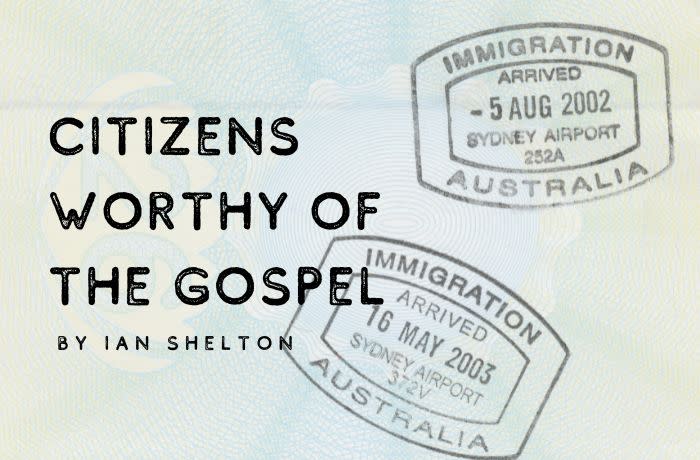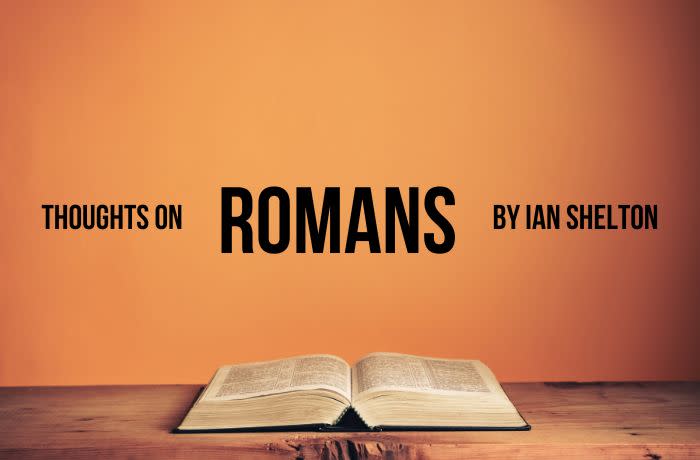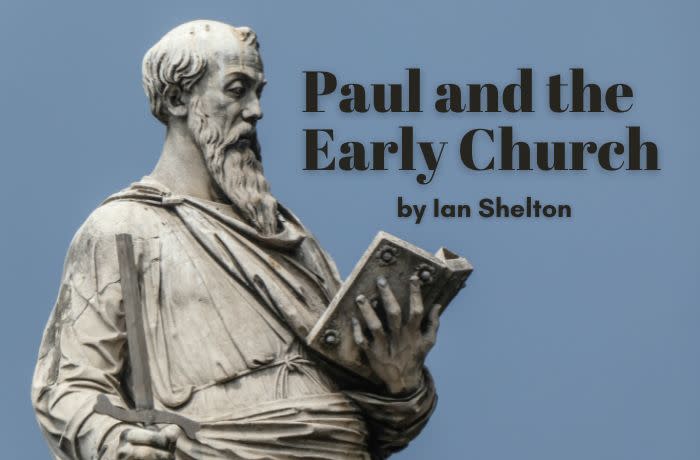Download our vision book
Movement Australia (MA): What it was like growing up in Bristol for you as a young boy?
Marvin Rees (MR): Bristol’s about 120 miles west of London and it’s a big city. It was a major port back in the day and one of the wealthiest cities in the UK along with Liverpool, Manchester and London. It's one of the ten biggest cities outside London.
For me growing up it was quite tough. My mum had me in 1972 (that ages me). She was a white woman, unmarried, no money with a brown baby on the way. In 1972 that wasn’t the done thing. So she came under a lot pressure over what to do with me but my mum has internal strength so she brought me up. We didn’t have much money so that made it tough. Bristol was quite a racially fractured city as well. Coming off the Windrush arrival there was a lot of racism in the UK. People coming from the West Indies and South Asia to build the UK after the Blitz weren’t given as much of a welcome as they were lead to believe. It wasn't unusual to be chased or racially abused or physically threatened on the streets and city. But having said that it was also the city that gave me a start, gave me a platform to become mayor. So as with most places it’s full of contradiction.
Watch our video interview with Marvin Rees
MA: Growing up in Bristol did you ever believe that one day you would be the mayor?
MR: I always wanted to do something. I grew up believing there was more to life than what I could see around me. I believed I had purpose and I always believed it had something to do with poverty, inequality and fairness. So I always thought I would do something but I couldn't have imagined it was going be mayor.
MA: You're a man of faith. When you decided to run for mayor did you feel a particular call; God saying this is something that you really needed to do? What was the process around that?
MR: I did. Just like when I went to university I felt like this was part of my development. I had a great opportunity to go to Yale a few years ago and that was my development. To me this is another pathway to express my desire to try to make the world more fair, more just, to take care of the planet in the way that we’re supposed to. So to that extent, yes, I did feel a call. The real triggers for my decision were two key people: Professor David Burger who was at Yale who said to me, "I think you should do executive politics more than legislative politics. I think you would enjoy it more." And a friend here in Bristol Councillor Margaret Hickman encouraged me to run for mayor. So I say to young people today you’ve always got to have good friends around you because they’ll spot things that you perhaps can't spot yourself and they’ll see things in you that you don't see yourself. So yes, I believe this is the place I am meant to be.
MA: There's good unity among the churches and a great prayer network in Bristol. What role did they play in supporting you in running for mayor?
MR: I ran twice: once in 2012 which I lost and then again in 2016 when I was elected. I think that the church’s relationship with electoral politics is an interesting one. I think that churches are very nervous about it. They like to be seen as clean and there's almost a virtue in declaring non-engagement in party politics. I see the dangers in getting mired in it but I also see the dangers in not getting involved. Power abhors a vacuum. If you leave a vacuum something will fill it and it's no point the church turning up in 6 or 7 years saying, “Why are all these bad things things happening?” when you could've actually been involved in helping get the right policy in the first instance. My play with the church is don't come out after the fact and ask politicians why you didn't do anything or even stand in front of God. God will say, “I gave you a huge organisation with lots of members. I gave you resources, intelligence and a functioning democracy. You chose not to line all these things up to influence the rules within which people have to live.” So why pray for miracles when you have this massive opportunity in front of you to shape policy?
Listen to this interview on the Love Your City Podcast
MA: I know Andy Steet, one of the Christian leaders in your city, works closely with you. What is your relationship with the church now after four years as mayor? How do you work to see your city flourish?
MR: There’s a few levels on which it’s happening. After I lost the first election we were able to have a bit more of a conversation with the church. I never wanted to say, "Vote for me because I'm a Christian." That’s cheap. You can’t just wave a bible around in front of a church and win the loyalty of the church. It shouldn’t work like that. It has to be about policy and what you stand for and about values and your track record, just being more forthright. With someone like Andy, we developed a culture in the city called, “Make a big offer don't make a big ask.” So rather than just going to politicians saying, “What are you going to do about this? What are you going to do about that?” You've got a come with an idea. Come and tell me what you want to do in the city, your big vision for Bristol. And then tell me what you need from the city that will enable you to deliver that. That’s a much more respectful relationship. What I'm going to do is invest in your potential and by investing in your potential we will unlock something for the city. Andy comes comes with a vision and he says, “I want to end child hunger in Bristol.” “Okay, what do you need from us to do that Andy?” “I need access to primary schools. I need breakfast clubs. I want you to help me convene a meeting with the member of parliament, cabinet and the council. I want access to adult social care and school services.” “Alright, we’ll do it. If you say access to all that can help you and your team of faith and non-faith actors end child poverty in the city, great let’s do it and let’s see where we get to.” That’s been the nature of the relationship. I'd say it's it's taken the church five steps forward in the maturity of its presence in the city.
There was a bit of nervousness in my office among some of the younger staffers saying that we're getting a lot coming in on social media and letters about the church and your role with them. But my chief of staff put in brilliantly. He said, “The church is turning up with ideas, solutions resources and energy. What are we going to do, turn them away?” We’ve got 25 percent of the children in our city in poverty. Are we going to turn the church away? Of course we’re not. If someone else wants to turn up with that we’ll listen to them but no one else is. The church has turned up as a solution to the city’s challenges now. Food, housing, social inclusion, education and inequality, women in the sex industry, it’s been fantastic and Andy’s been at the forefront of that.
MA: I know he's leading a united group of churches so it's not just one church or one denomination.
Currently, what do you see as the bigger challenges in Bristol? I know you've been affected by issues of racism. We've seen that on the news. How are you handling that?
MR: Racism operates in different ways. You get the overt stuff that I dealt with as a kid. It's not nice to be called names and have people threaten you but I don't think I'm a good example if you want evidence of white supremacy. I’ve got a couple of masters degrees, I’ve travelled round the world, I’m the mayor of Bristol so I'm pretty comfortable with that. I'm more worried about other people who don't have the security of those achievements. And I'm more concerned about the amount of invisible and impersonal racism. If racism was all about evil individuals orchestrating inequality it would be really easy to deal with. You would just find them and sack them. But that's not the way it works. We have a race pay gap in the cities, pound for pound, hour for hour. People with brown skin, black skin are paid less than their white counterparts. I can't find an individual doing that. It is the way the system works. That’s why it’s called systemic racism. You can see the same with gender. We have a gender pay gap. Women, skill for skill, hour for hour are paid less. You will not find an individual or a collection a policies generating that inequality. It's just the way it happens. And I'm not trying to trivialise it. We've got to be quite sophisticated in our understanding. And secondly, racism is not just about getting people praying together, singing together, sitting around a campfire eating each others’ food singing Kumbya. Tackling racism is getting to a point where my brown children are not born destined to die earlier, get a poor educational outcome, end up in mental health institutions or the criminal justice system more than white children. When we have delivered that kind of world then we have the grounds for genuine reconciliation. Outside of that reconciliation can be pursued and we can make good friendships. I’m mixed race but I’ve got white friends. That doesn't undermine it but it’s a factor to our relationship. I’d like to see the church on the forefront, bringing that level of sophistication to tackling racism.
MA: Practically, what would it look like for the church to be on the forefront?
MR: It means getting involved in policy. For example, driving the development and delivery of affordable housing in genuinely mixed communities with mixed tenures, not allowing ghettos. What are the policies that have generated ghettos or separation that means we have had different access to quality housing? Are children from different backgrounds getting a radically different experience of education? We have 56% of our children in Bristol not getting access to work experience. You can guess which 56% percent those are. They are going to be the poorest. That cuts across race, it cuts across class. The white working class kids are not getting access to work experience in the legal professions. We are one of the most socially immobile countries in the OECD. Your parents background is the single most effective indicator of where you’ll end up in life. That is injustice writ large right? So getting involved in those policies that shape life trajectory, that's where the church needs to be. We must pray together. I know prayer matters but prayer without deeds is dead right? So what are the factors that stymy life chances for people? When we deal with those we’ll have the platform for really tackling racism, sexism, class immobility and injustice.
MA: Do you think this is possible in your lifetime?
MR: No, I don’t. I'm hopeful but I'm not an optimist. I think we just fight in the face of it. That's our responsibility. Sometimes victory doesn’t look like victory. Look at the story of Jesus. It didn’t look like a victory in the moment but it was a victory. We leave the results to God. Our job is to do what we can. I’m a fallen human being working with an imperfect political party in a broken political system. I’ve just got to do my best and leave the rest to God.
MA: What role does your faith play from day today in your work as a mayor?
MR: It's just who I am, just like being male, being mixed race, being black. It's just stitched into me. It's very difficult for me to define it, like asking a fish to define water I suppose. I think about it all the time. It’s the reason I didn't end up living out the consequences of the circumstances of my birth. It was the thing that gave me a sense of purpose and helped me to find self-esteem. So yes, huge.
MA: Lastly as we finish. Hopefully hundreds of leaders across Australia will read this; leaders who want to impact their city who maybe haven’t engaged politically or with a mayor. What advice or encouragement would you like to leave with them?
MR: The world hasn't got time for people to leave their talents buried in the ground. One day we’ll have to account for everything we had at our disposal in front of God not just for our own personal morality but for the impact we’ve had on the world. I used to work for Tony Campolo years ago. There’s a legendary story about Tony and a church praying for money to fix its roof. When he got the church to look at their money they had all the money they needed. He said, “Why are you praying for a miracle? You’ve got all the money here. That’s rude.” We can look around the world and it seems unfair but we’ve got a phenomenal amount of resource and influence and if we put it to the service of the common good we can make a massive difference. I also think the church has a very meaningful message and insight to share on what it takes to build human relationships. Our salvation, the graciousness given to us is free but it's not cheap and too often in wider society we go for quick, cheap relationships, quick, cheap get togethers under weak banners of identity, be it local, national, racial or whatever. The church should understand reconciliation and it should be able to help politics understand what it means to build a reconciled society. I’d love to see the church leading on that.
MA: Thank you so much for your time. May God continue to use you and God bless Bristol.



